Thyroid eye disease is a rare eye condition with few treatment options. Veronica has lived with it for 20 years and shares her story...... Read more >
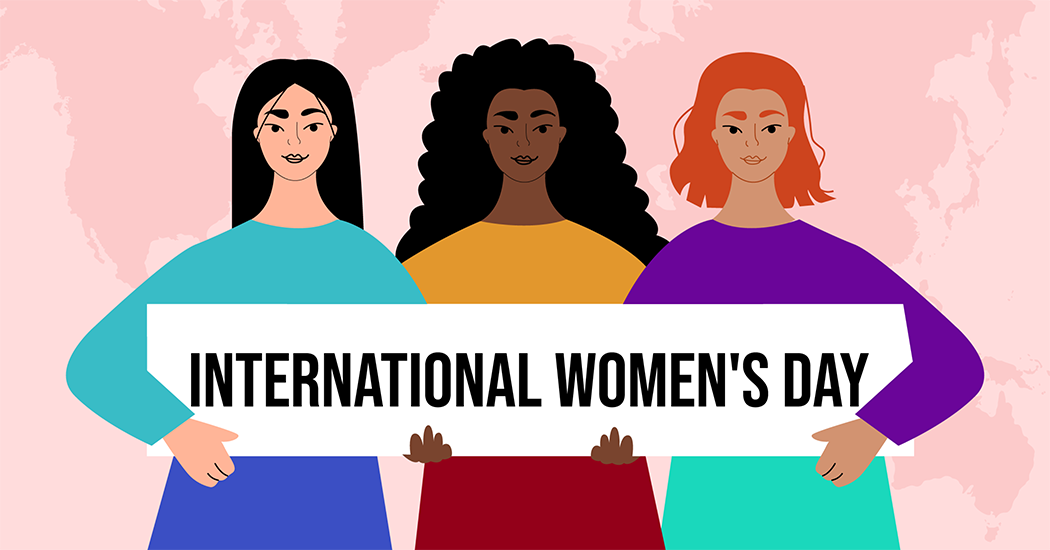
Celebrating women with chronic illness: Meet 30 patient advocates
Celebrating women with chronic illness: Meet 30 patient advocates
This International Women’s Day, members of our Australian community join patient advocates from around the world to share their advice, challenges, and how they’ve found support.
Published 8 March 2023
International Women’s Day is a day of recognition of women’s rights and a celebration of their achievements. In line with this year’s theme, “embrace equity,” we are shining a light on health equity and how chronic illness impacts women around the world.
We asked members of the Global Healthy Living Foundation (GHLF) and CreakyJoints patient community to share their personal health journeys and insights on how they’ve learned to live better as women with chronic illness. We hope their wise words resonate with you and help you better manage your health with our supportive community.
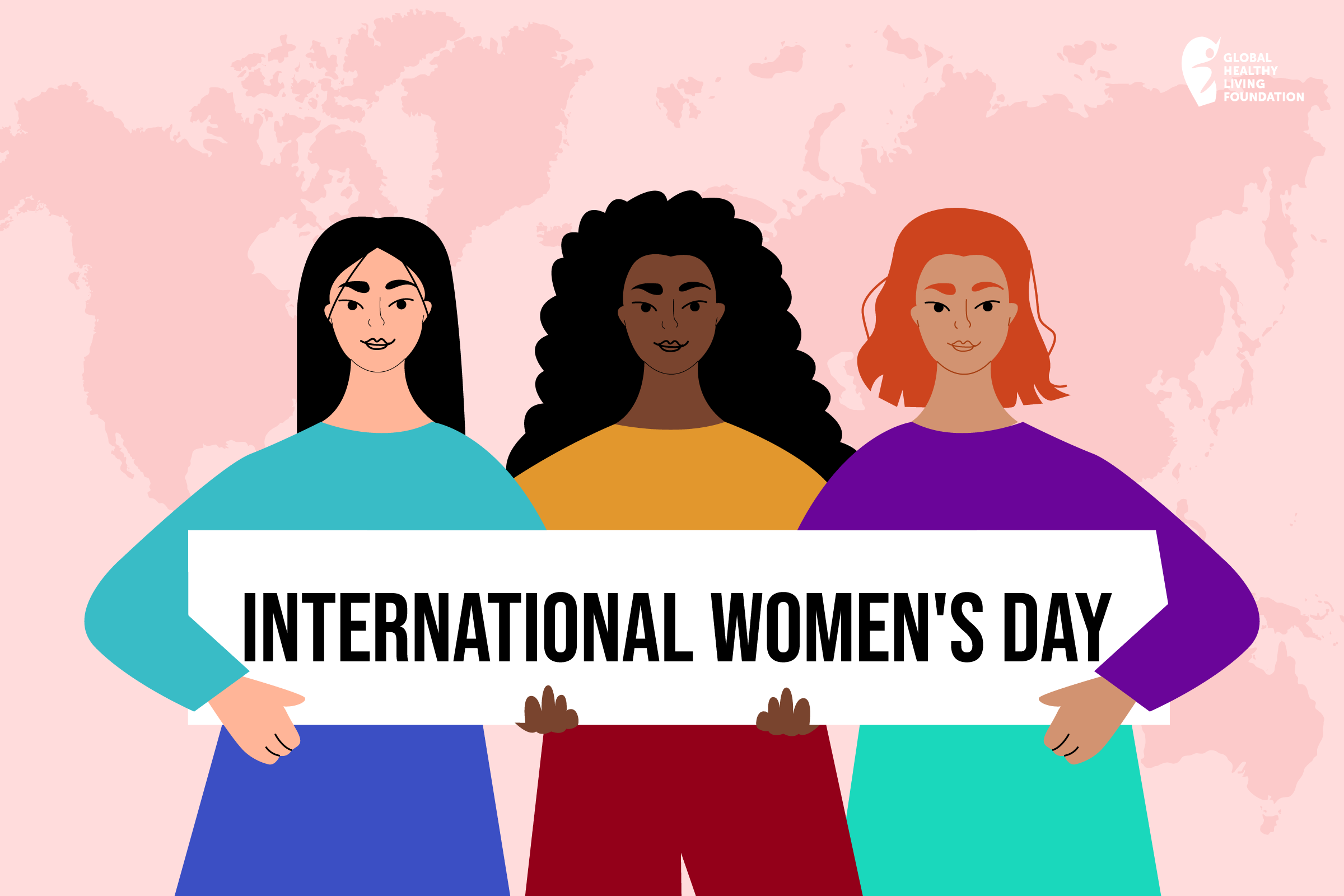
“To all my fellow patients: We are all in this together, and together we are stronger,” says Judy Nagy, who lives in Ohio, US. “In honour of International Women’s Day, I also want to thank the women who are research associates, physicians, surgeons, counsellors, nursing staff and administrative staff, and who do their very best to help us all live a better life each day.”
Women face many barriers when it comes to getting health care
“Women often get brushed off as dramatic or attention seeking when it comes to their physical and mental health, not just in society but also when we seek care from professionals. This can be a challenge when trying to get a diagnosis or effective treatment plan.” — Eileen D, who lives with rheumatoid arthritis, fibromyalgia, osteoarthritis, anxiety and depression and is from British Columbia, Canada.
“I probably had the most challenges when I was planning for pregnancy. I remember a lot of thought and consideration went into deciding which medications I could keep taking and which ones I won’t have to stop taking because they were not “safe” or compatible with pregnancy. After relying on medications for so much of my life, it came as a real shock that we didn’t know how these medications could affect the baby. I don’t think that people who don’t live with chronic conditions understand the additional time and cost of living with these diseases.” — Laurie P, who lives with juvenile idiopathic arthritis / rheumatoid arthritis and Sjogren’s syndrome and is from Ontario, Canada
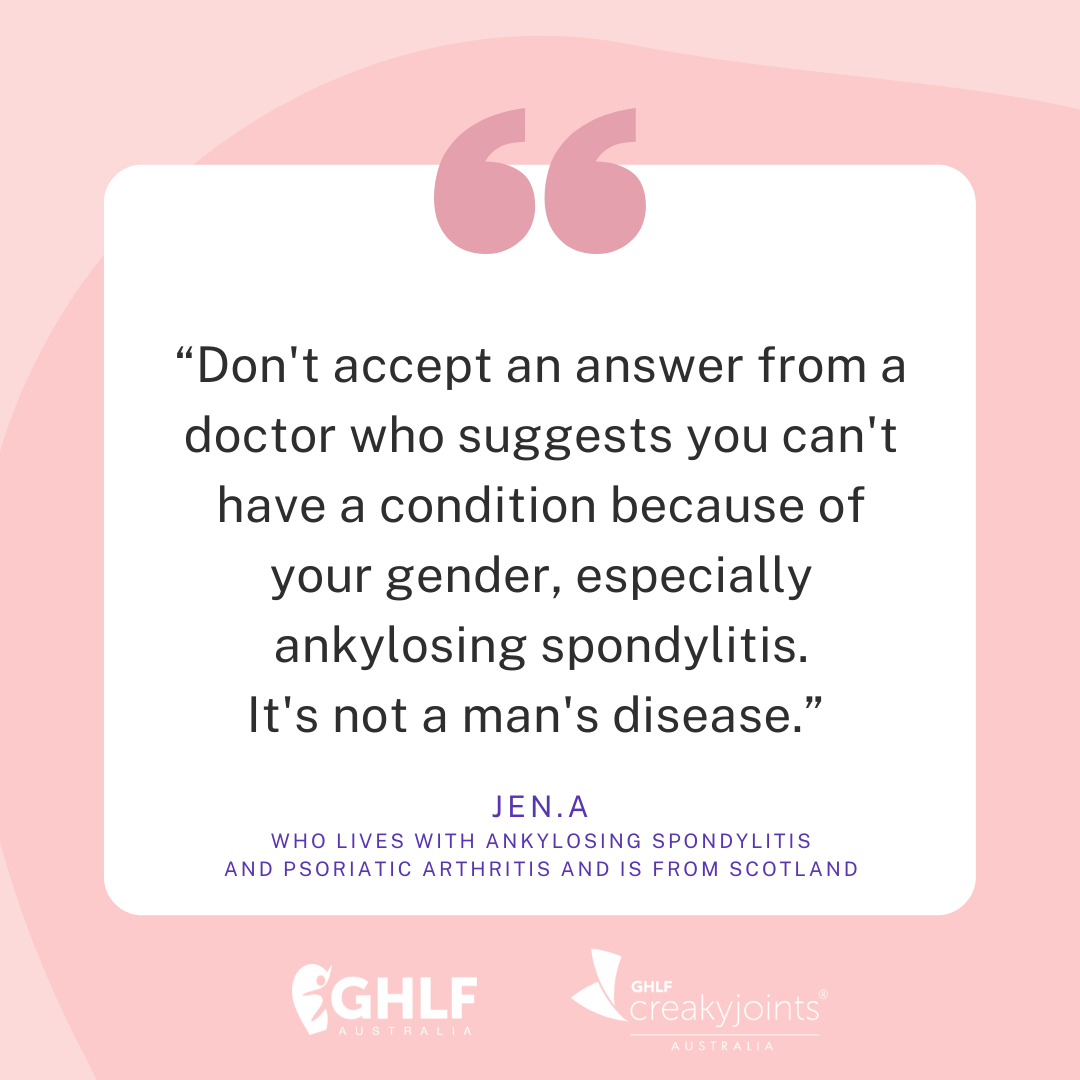
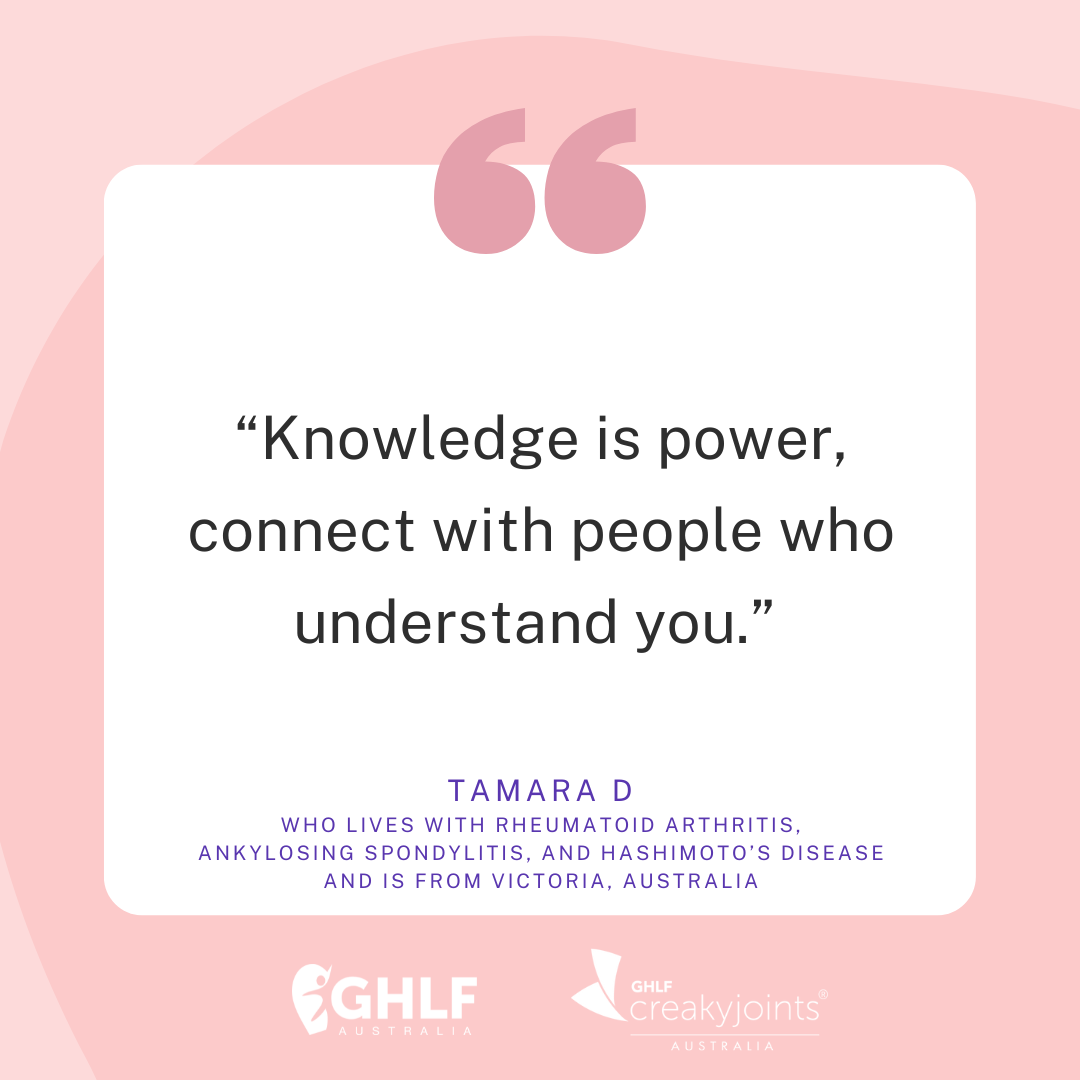
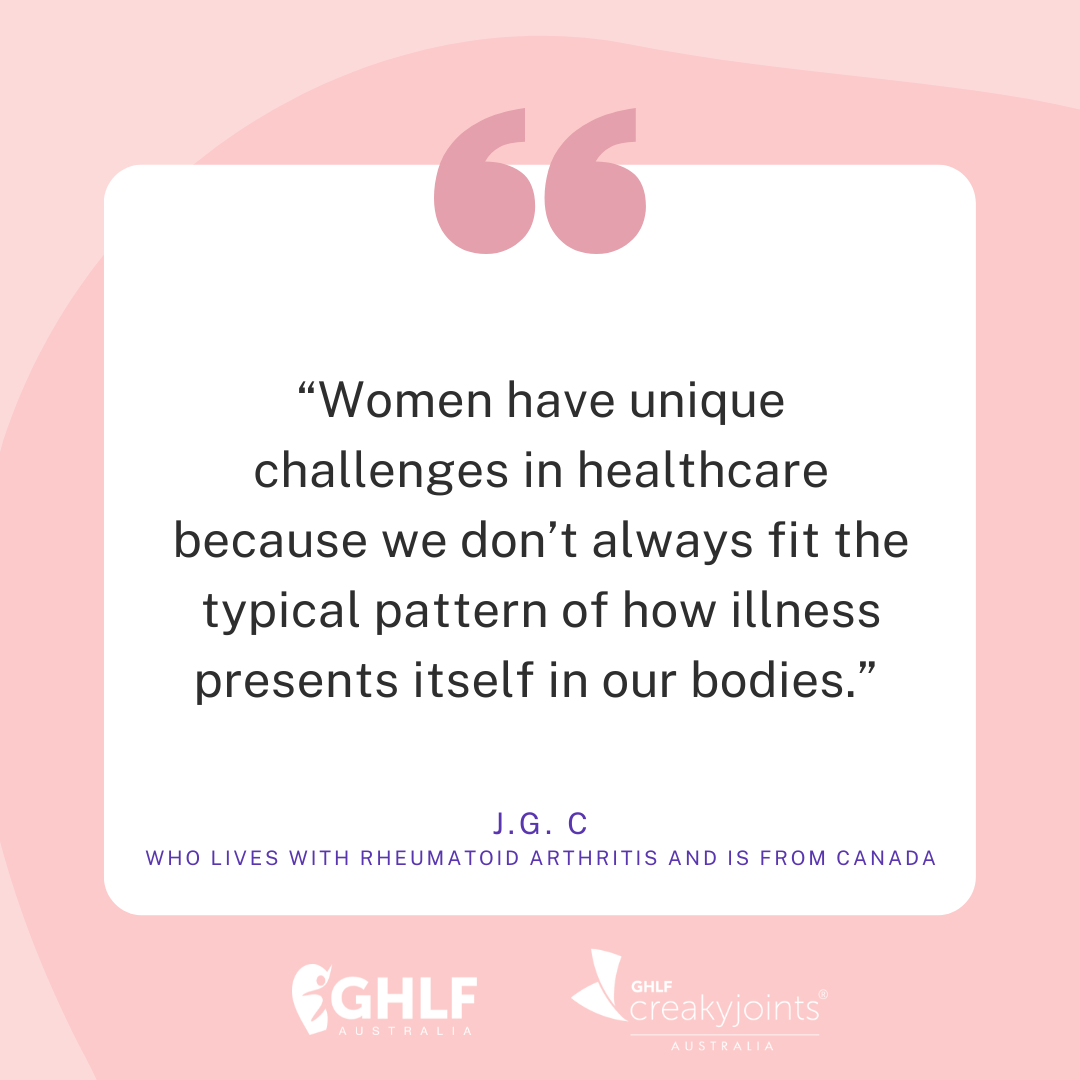
“Women have unique challenges in healthcare because we don’t always fit the typical pattern of how illness presents itself in our bodies. The biggest barrier is finding a health practitioner who recognises the different needs and physiology of a woman. Our symptoms often don’t present themselves in the same way they do in men, we may require a different approach to diagnosis and treatment. It’s not always easy to find someone who pays attention to our symptoms and takes the time to further explore sudden changes in our health.” — J.G. C, who lives with rheumatoid arthritis and is from Canada
“Being a Black woman living with chronic illness, I face racial bias. I feel it most when it comes to my symptoms being addressed and pain being treated adequately. It took me over seven years to finally be diagnosed with lupus because my physician did not take my reports of pain seriously as a teen. Having now lived with lupus for 13 years, with or without health insurance, I still experience frequent bias. Studies show that Black patients are 40 per cent less likely to receive medication for pain in comparison to white patients.” — Tiffany P, who lives with lupus and is from New York
“Don’t accept an answer from a doctor who suggests you can’t have a condition because of your gender, especially ankylosing spondylitis. It’s not a man’s disease. Accessing health care as a woman — most of my doctors have been women — has been fantastic for me. It’s not assumed that my pain levels are down to gender and are in fact down to my condition.” — Jen A, who lives with ankylosing spondylitis and psoriatic arthritis and is from Scotland
“You really need to shop around and if something does not sit right then keep exploring and meeting with other specialists until you find someone you trust who listens to you. Knowledge is power, connect with people who understand you.” — Tamara D, who lives with rheumatoid arthritis, ankylosing spondylitis, and Hashimoto’s disease and is from Victoria, Australia
“Accessing health care as a woman is incredibly difficult. It’s so hard to be believed, and you often experience a lot of medical gaslighting. It took me five years to get a fibromyalgia diagnosis, which is actually fast. I had to beg doctors to listen to me and order tests. Many of them told me it was in my head and refused to investigate, which is utterly heartbreaking. I’ve also been unable to get a diagnosis for my reproductive condition, despite clear evidence that it exists.” – Zoe S, who lives with fibromyalgia and undiagnosed adenomyosis and is from Victoria Australia
Advice for other women dealing with chronic illness
“Find a support system/group with other women. There are some issues in chronic illness that are unique to women and it’s helpful to have a safe, non-awkward place to discuss these issues. Sometimes it’s helpful to process things out loud with others who need to process it similarly, just like you.” — Elisa C, who lives with Sjogren’s, dysautonomia, gastroparesis and rheumatoid arthritis and is from Tennessee, US
“Always remember, in order to take good care of your loved ones you need to take good care of you first.” — Winnelyn B, who lives with chronic migraine and is from California, US
“Put yourself first. It’s not the same as putting anybody else last, and it might just save your life. We’re often pressured to put keeping the peace or getting along with others over meeting our own needs. This pattern of behaviour can be unlearned. Don’t wait for anybody’s approval to pursue self-care or treatment. Don’t let embarrassment, shame or frustration be the reason that you go without care or come to harm.” — Dawn G, who lives with ankylosing spondylitis and is from Michigan, US
“Asking for help when needed is not shameful, it’s a sign of strength and self-awareness. You are allowed to be upset about your chronic illness when it affects you and know that you are not alone in feeling this. Always surround yourself with people who love, support, lift you and care for you. Try not to care about what other people think about your chronic illness because firstly they have no right to, and secondly, they do not go through your chronic pain journey. Just do what is best for you and set boundaries with people. Research your rights and use them to protect yourself.” — Nisha S, who lives with psoriasis and psoriatic arthritis and is from the United Kingdom
“The world belongs to the brave, and that is women. I know that pain is sometimes strong, but I try not to be discouraged because I have help. Don’t feel alone because we are not alone; it is knowing how to knock on the right door. Even if I must knock a lot.” — Patricia M, who lives with rheumatoid arthritis and Parkinson’s disease and is from Florida, US
“Manage your own health and wellbeing. Musculoskeletal conditions do not have the well-oiled medical pathways and processes that have been established for other chronic conditions like diabetes or cardiac disease. However, as a patient, we can choose and build a team of health professionals, and physical, mental and exercise practitioners to support us along the way. We have to manage our health professionals, treatments and medications and also juggle our work, friends, family and exercise.” — Annie M, who lives with ankylosing spondylitis, osteoporosis, osteoarthritis, gastro-oesophageal reflux disease, psoriasis and asthma and is from Victoria, Australia
“Keep fighting for YOU and connecting with the person you know you are, despite your condition. Your disease does not own you. It may change some of the things you can do, but you are better than it. You are the driver, so things like keeping your self-esteem up are important for you to battle the beast. Make small efforts daily to make yourself feel good. Keep your dreams alive as they can still happen. Connect with others who provide inspiration and support your goals.” — Naomi C, who lives with rheumatoid arthritis, Sjogren’s disease, psoriasis, and chronic prosthetic infection and is from Tasmania, Australia
“I advise women who have chronic diseases to maintain a positive attitude. Exercising every day also helps my serotonin levels or happiness hormones.” — Velia R, who lives with rheumatoid arthritis and is from Puerto Rico
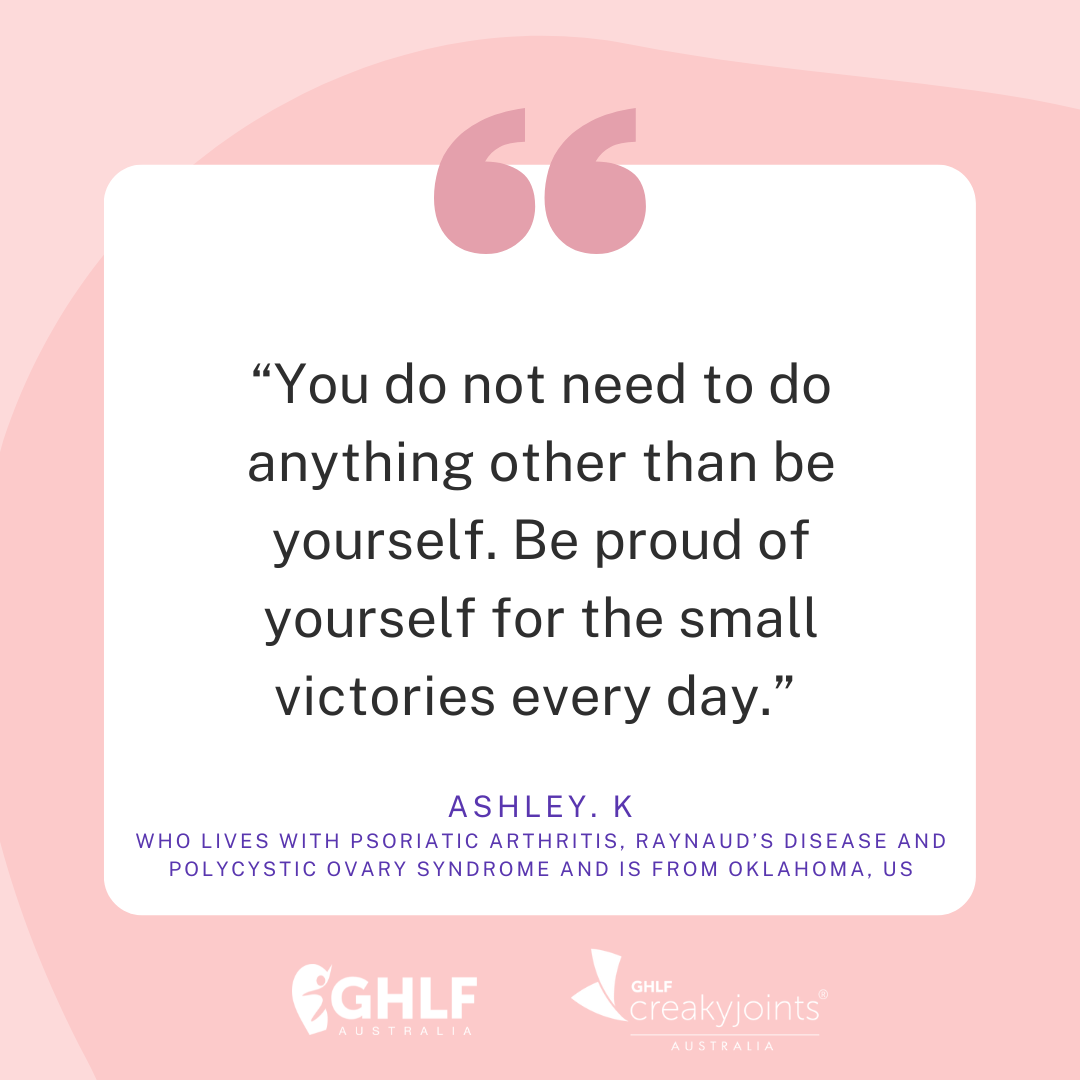
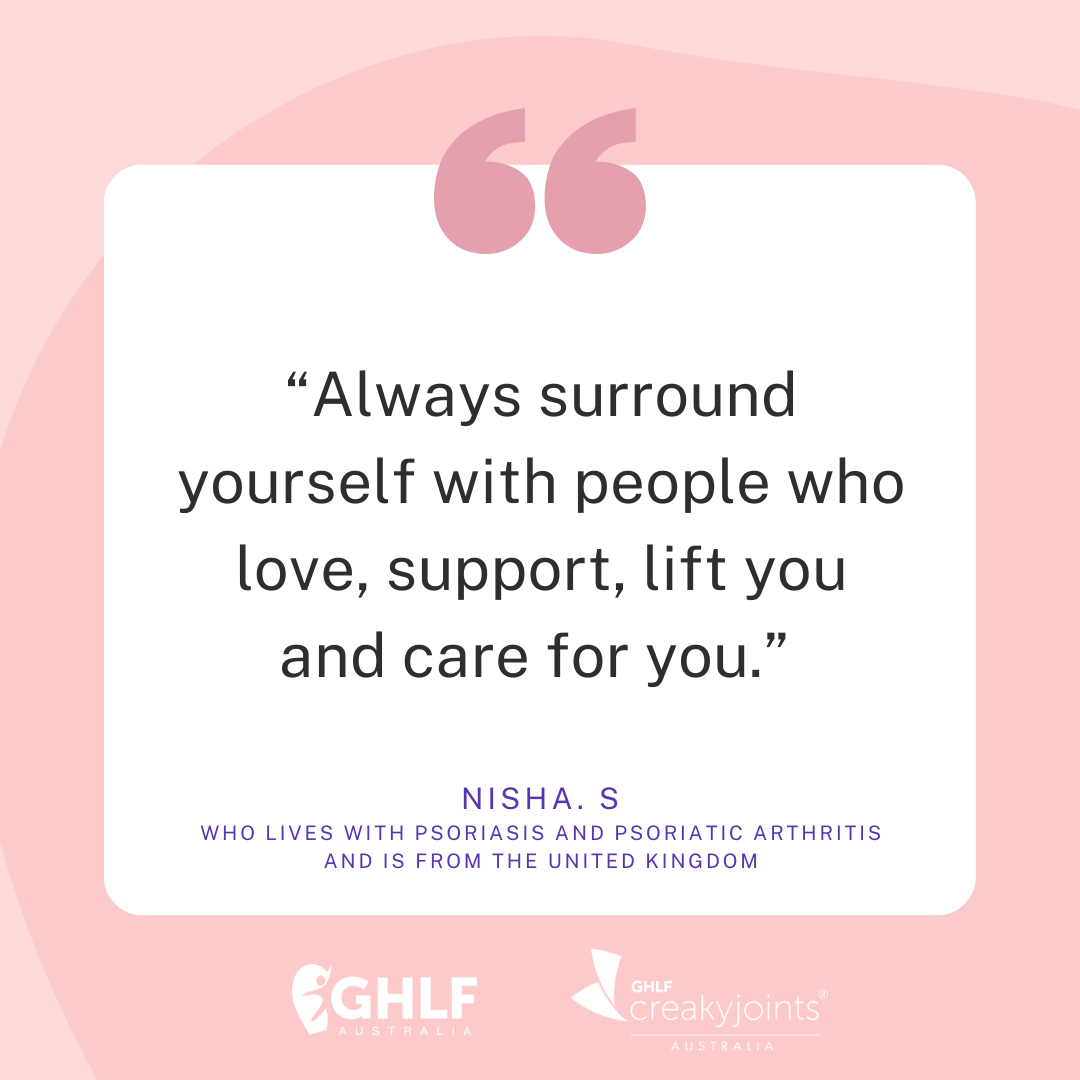
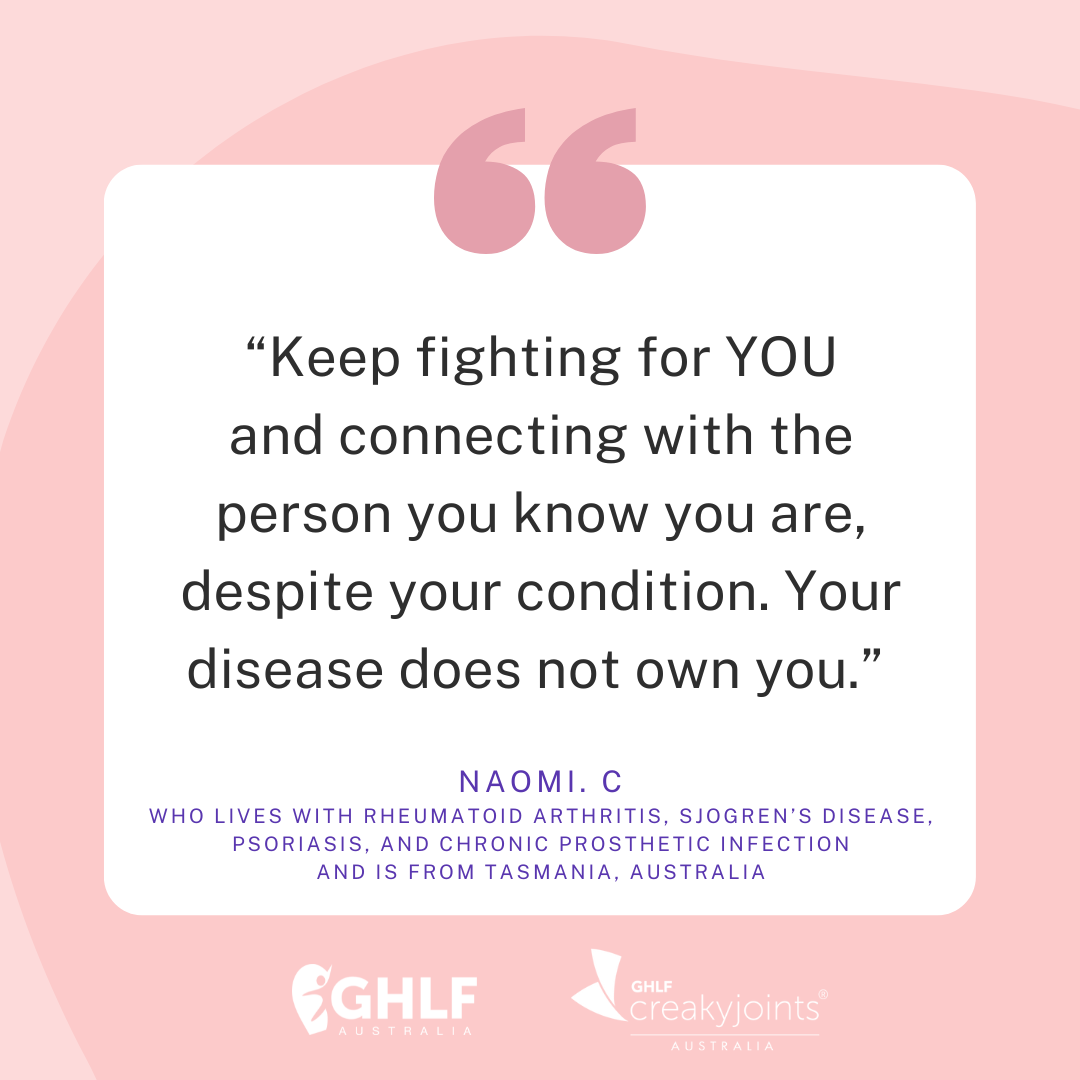
What women in our community wish others knew
“Chronic illness does not mean you are damaged goods or that no one will want to be with you or appreciate you. You do not need to do anything other than be yourself. Be proud of yourself for the small victories every day.” — Ashley K, who lives with psoriatic arthritis, Raynaud’s disease and polycystic ovary syndrome and is from Oklahoma, US
“We are humans with a certain pain threshold and may not be functional when we have reached that threshold.” — Vera G, who lives with migraine and is from Texas, US
“The amount of guilt I feel daily for not being able to clean the house, cook dinner, do laundry, vacuum or wash the dishes is at an all-time high. Logically, I know it’s not my fault and that the guilt is misplaced. But my heart doesn’t seem to get the message. I do what I can when I’m feeling my best, even though I know doing so might lead to an attack. I tell myself the coming migraine attack is worth it because I don’t want to miss out on things in the moment. It works for me.” — Erica C, who lives with chronic migraine, fibromyalgia, undifferentiated connective tissue disease, Sjogren’s disease, and Raynaud’s disease and is from Texas, US
“I wish people knew that illness does not have a “look”. Just because we may carry it so well doesn’t mean it doesn’t get heavy. Chronic illness can be very heavy. I wish people would extend more grace and listen and believe us when we say we are exhausted, we have little to no energy for little things that others take for granted, we’re in pain, we just want and need rest.” — Ashley N, who lives with rheumatoid arthritis, and lupus and is from Texas, US
“If a healthy woman is valuable, a woman with chronic illness is more so because her effort, courage and struggles are invaluable. If people knew what we went through to perform daily tasks, I think they could have more empathy with us. It’s easy when we have our condition under control, but when we have a flare and so many responsibilities to fulfil, it’s really a challenge.” — Wigna C, who lives with rheumatoid arthritis and is from Puerto Rico
Prioritising mental health is key to balancing chronic illness and the multiple roles of womanhood
“I now know that taking care of my mental and physical health must be top priority if I want to be able to do all the wonderful things I love to do with my family. It was hard for me initially since I was always the “giver” but slowly with my husband’s encouragement, I learned to ask for help and slowly the children also started helping. Now I have fixed schedules for doing my yoga and for my meditation throughout the week and my family appreciates that and gives me that space.” — Indira P, who lives with rheumatoid arthritis and is from Connecticut, US
“I think it’s important to remember that if we don’t help ourselves first, we won’t have anything left to give to the people who we love. Just like on a plane when you’re instructed to put your oxygen mask on before helping others, it’s imperative that we prioritise our own health and well-being first to ensure we don’t burn out and can, in turn, give back to our families and communities.” — Sarah A, who lives with vestibular and chronic migraine and is from Wisconsin, US
“Protecting my peace has become my number one priority. And I don’t mean that lightly, or to be catchy. Continued stress literally pulls nutrients away from our body’s daily function. Being chronically ill means I have lower energy levels and capacity than an able-bodied person. I must be very intentional with what I spend my energy on. If something is not adding value to my life, I simply do not have the space for it. Is this easy? Absolutely not. It took me a while to get here, but wow is it worth it in the long term.” — Carmen Rose F, who lives with chronic migraine and is from New York, US
“It’s okay to advocate for yourself when you need help. It’s okay to take your needs into your own hands. Schedule time in your day for breaks when you need them and manage your own schedule so you can optimise the time you feel your best. Sometimes we have to take things into our own hands to make sure we have everything we need to be the best mother, partner, employee or employer possible while living with our condition. Let it empower you.” — Lauren S, who lives with psoriatic arthritis and is from Illinois, US
“For my mental health, I do yoga, walking and swimming, especially the spiritual part as that is essential. Accepting and forgiving yourself because sometimes we blame ourselves thinking “If I had done the treatment on time” or “If I had changed jobs” — there are so many questions that a person with chronic disease asks themselves.” – Zucy A, who lives with rheumatoid arthritis and is from New Jersey, US
Access to technology improves health equity for women
“I use technology every day; from tracking symptoms and communicating with my doctors, to practising mindfulness and meditation. I love technology. It makes me more able-bodied, and I can blend a whole lot better into society. No one even knows I have RA most of the time.” — Stefanie R, who lives with rheumatoid arthritis and is from Nevada, US
“Technology has been a game changer for me as a woman with chronic illnesses. After years of being isolated and feeling alone and vulnerable, social media helped me find a community of fellow South Asians with inflammatory bowel disease and build networks of support and solidarity. This has been essential to my journey toward acceptance.” — Madhura B, who lives with Crohn’s disease and is from India
“I think technology is anything that makes life easier and conserves my energy. A vegetable dicer, an air fryer or InstantPot multi-cooker — anything that does not require me to stand on my feet for too long as I cook for my family. I’m grateful for my robot vacuum cleaner because cleaning a house with a 4-year-old and a dog can take every little bit of energy. Noise-cancelling headphones, a Cefaly device, Avulux glasses and massagers — all of these are also technologies that have made it easier to manage certain symptoms of chronic migraine.” — Shruti S, who lives with chronic migraine and is from Canada
“While the pandemic offered a lot of challenges, one of the very positive things was the fast track to implementing telehealth. Most of my routine appointments can now be done via telehealth. The world has finally realised that those who are the sickest have the most medical appointments, highest medical expenses and hardest time physically accessing medical care. Technology eases those issues when people are willing to adopt it.” — Arthritic Chick, who lives with inflammatory arthritis, myositis, rare bone disease, paralysis and neurological deficit, pituitary tumour, eosinophilic esophagitis, adenomyosis and endometriosis and is from Canberra, Australian Capital Territory
For more stories from women and other advocates around the world, check out Keeping It Real with Arthritis, authored by rheumatoid arthritis patient advocate, Effie Koliopoulos.
This article has been adapted, with permission, from a corresponding article created as a joint project with our Global Healthy Living Foundation (GHLF), CreakyJoints and CreakyJoints Australia colleagues. Some content may have been changed to suit our Australian audience.

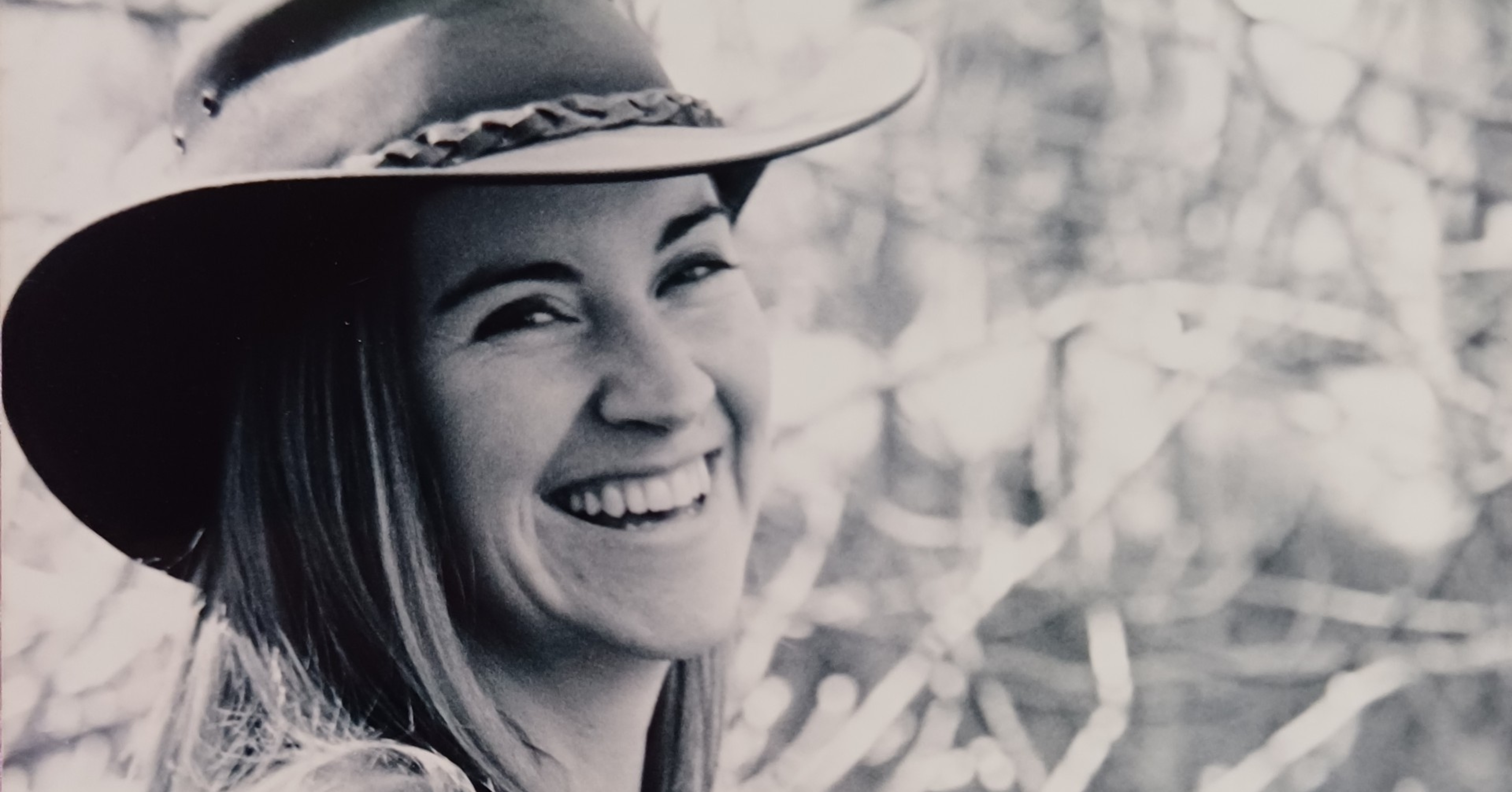


This Post Has 0 Comments